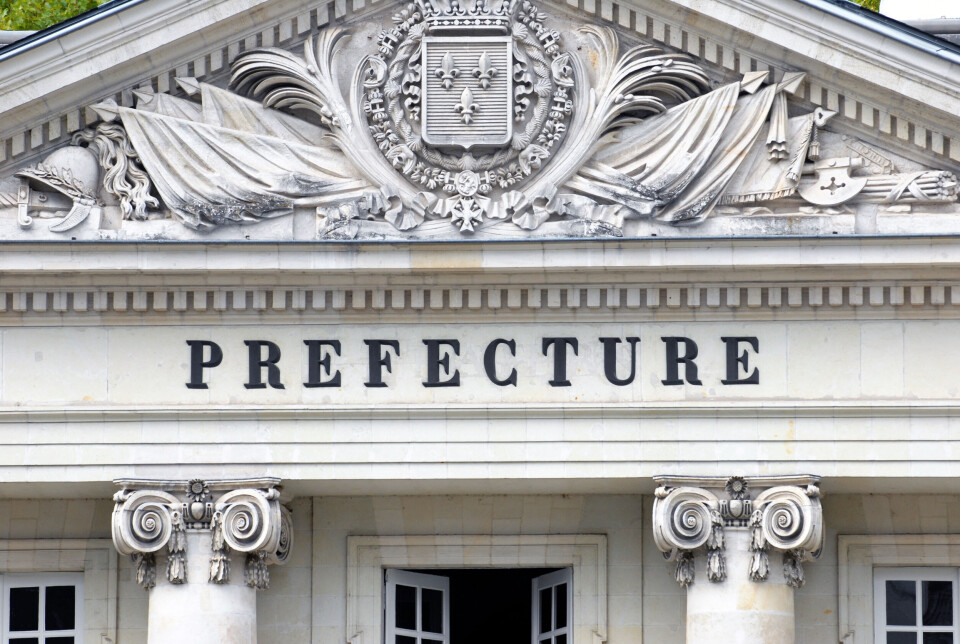-
Two thirds of people polled say they struggle with online French admin
The problem has worsened in the past 10 years as more and more services ‘go digital’, finds study
-
Explained: how to renew a US passport when living in France
Check your eligibility for postal applications and find out when an in-person appointment is necessary
-
Local election rule changes in France and why you may have a new mayor in 2026
Communes with fewer than 1,000 residents are particularly set to see changes from next year
Ten things you can do at French prefectures beyond carte de séjours
Balloons, medals and temporary bar licences - your local prefecture can help with the serious and fun things in life

Every department has a prefecture headed by a prefect, who may be assisted by one or more sous-préfets in their sous-préfectures.
You can think of them as the top jaw (French administration enacted by government-appointed representatives, ie. coming from the top down) and mairies as the bottom jaw (French administration enacted by elected officials, ie. from the bottom up).
One of their main jobs is to police local government and act as a carrier pigeon between it and the state. They also organise and oversee all local elections.
Their websites carry diverse information, such as local bans on barbecues, drought restrictions, firework bans and rules to keep chickens inside during avian flu outbreaks. This is then republished by mairies in a simpler format.
Another of their functions is to make sure mairies and communautés de communes act legally and correctly. This is because élus (elected representatives, such as mayors) do not have specific training in administration or law.
Read more: Hundreds of French mayors quit due to ‘Covid and increased workload’
The prefect is essentially the sheriff and checks everything decided at lower levels before it is signed off to be actioned.
In the past, people had to visit the prefecture to apply for vehicle and residency permits but this is now mostly carried out online. You must still visit for certain tasks.
Apart from picking up a carte de séjour, here are other things you can do there or via your prefecture website:
1. Sort a permit to release balloons
This could be for a wedding or birthday party, for instance.
2. Welcome ceremonies for new citizens
A cérémonie d’accueil (welcome ceremony) for people acquiring French nationality is usually held at the prefecture, but sometimes at the mairie or local police station.
During the ceremony, the charter of rights and duties is read out to the new French citizens.
Attendance is not obligatory, although inviting new citizens to a ceremony is.
Employers are obliged to grant at least half a day of extra paid leave to enable people to attend.
3. Set up a not-for-profit 1901 association
You can also set up a charitable foundation. You can also apply to have your organisation recognised as being a utilité public (of public utility), which is financially advantageous.
This is free and in many areas can be done online.
4. Do an association name check
Check that the name you have chosen for your association or foundation is not already in use.
The prefecture should be able to point you in the direction of a list of names already in circulation.
5. Get permission to run a temporary bar
This applies to association bars at public events such as fairs, festivals or car boot sales.
They usually allow groups to sell wine and beer but not spirits.
Read more: Garden parties in France: Do I have to get permission to host one?
6. Get tour guide accreditation
Apply for a card showing that you are a fully-qualified, professional guide-conférencier.
You will need this to get a job as a tour guide in a state-owned museum or monument.
Getting the card requires a surprising amount of experience and academic qualifications and, as a result, is highly prized.
7. Be a medal holder
Apply to be awarded a medal for long service in your employment.
The Médaille d’Honneur du Travail, the Médaille d’Honneur Régionale, Départementale et Communale, and the Médaille d’Honneur Agricole are awarded twice a year to applicants who fulfil the requirements.
8. Get copies of official documents
These could be administrative documents and/or public information, such as reports, minutes of meetings, fines levied, statistics, planning permissions and documents announcing administrative decisions.
9. Ask for an exemption from Sunday rules
A dérogation au repos dominical is needed if, for example, you want to open your boulangerie on a Sunday morning.
10. Medical for driving
Provide a list of doctors you can visit who can check you are safe to drive should you have a condition considered potentially incompatible with driving.
Related articles
Metal detectorists in France reject ‘looter’ label in French crackdown
Can you visit the French parliament and listen to a debate?
Alert raised over poor French residency services for foreign people























